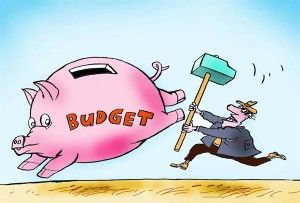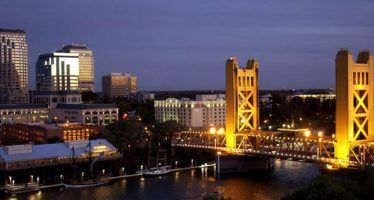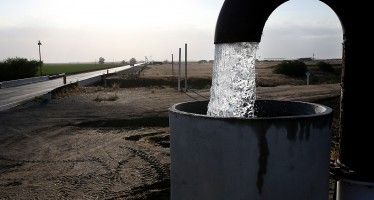CA Dems pressure Brown on spending
 New budget deadline, same budget battle.
New budget deadline, same budget battle.
That could be the watchword for Sacramento this week, as leading Democrats in the Assembly and the Senate labored on a spending plan that could survive the governor’s scrutiny.
Equipped with a line-item veto, which allows him to knock out provisions after they’re passed without scrapping a budget in its entirety, Gov. Jerry Brown has once again taken a more cautious stance on spending than his colleagues in the state Legislature, with far less allocated for state-subsidized child care, Medi-Cal and welfare recipients.
But many Republicans agreed once again that Brown’s circumspection didn’t go far enough.
Although profligate Democrats have been frustrated before, Brown’s political position has become unshakable. As he has headed into his fourth term, he has maintained a high public approval within his party — despite growing anxiety over the drought — to stave off a rebellion on spending. Democrats haven’t unified enough to override Brown with a two-thirds vote, Bloomberg Politics noted.
Dueling projections
Democrats have pushed to hike California’s budget even higher than the $115.3 billion Brown offered in his revised plan last month — a sum which “was already $7.3 billion larger than the budget enacted in June for the current fiscal year,” according to the Los Angeles Daily News. “And it reflected a $6.7 billion increase in projected general-fund revenues compared to the proposal he released in January.”
Democrats blamed overly cautious revenue estimates for Brown’s unwillingness to loosen the purse strings. “As in previous years, the disagreement revolves around the question of how much money is available for spending,” the Los Angeles Times observed. “The lawmakers’ budget plans are built with numbers from nonpartisan legislative analysts, whose revenue estimates are higher than the Brown administration’s. Even though revenue has routinely outpaced the governor’s expectations, Brown has continued to insist on the lower figures.”
That brought a swift rebuke from Brown’s camp. “H.D. Palmer, spokesman for Brown’s Department of Finance, confirmed that the governor has not reached a deal on spending with lawmakers,” the Times reported. “The Legislature is aware of our concerns with their higher revenue numbers, which is built on the most volatile revenue source there is, which is capital gains,” he told the Times.
Republican resistance
Over the past decade, income taxes have risen and fallen by the billions, as California has experienced unexpected twists and turns, including the global financial crisis and the latest Silicon Valley boom. In a recent speech, Gov. Brown argued against the kind of social psychology that could exacerbate the impact of adverse events. “The longer you’re away from a recession, the less you remember it and all you see is money coming in,” he said. “Usually at the point when the recession is right around the corner and people are feeling the best ever and they want to just spend, we crash.”
But Republicans cautioned that Brown’s tilt toward thrift did not go far enough. Former Assemblyman Chuck DeVore, R-Irvine — now vice president for policy at the Texas Public Policy Foundation — warned that the Golden State’s financial position couldn’t withstand another downturn. “California’s heavy reliance on a highly progressive income tax, with the nation’s highest top marginal rate at 13.3 percent, makes the state subject to massive swings in revenue as wealthy taxpayers realize capital gains or receive bonuses or stock options,” he wrote. “The challenge is in tempering budget growth in the face of historically wild swings in the state’s income tax revenue.”
Republicans faced their own challenge, however, centered around how else to structure California’s tax code. As the Los Angeles Times editorial board conceded, the state’s highest-in-the-nation income tax rate discouraged economic growth. “But reformers face a problem too,” it concluded: “Any move to stabilize revenue by de-emphasizing income taxes would appear to shift the burden from the wealthy onto everyone else. In a blue state acutely sensitive to income inequality, that’s a non-starter.”
Related Articles
State Cuts Lead to Judicial Triage
July 31, 2012 By Dave Roberts “A sense of confidence in the courts is essential to maintain the fabric of
LAO report: $1.3 billion state building plan lacks oversight
The $1.3 billion first phase of a project to build and modernize 11 state office buildings lacks adequate accountability and oversight and
Despite record surplus, Gov. Newsom wants new water, phone taxes
Gov. Gavin Newsom’s has called for a first-ever water tax and an added fee on phone bills at a time




